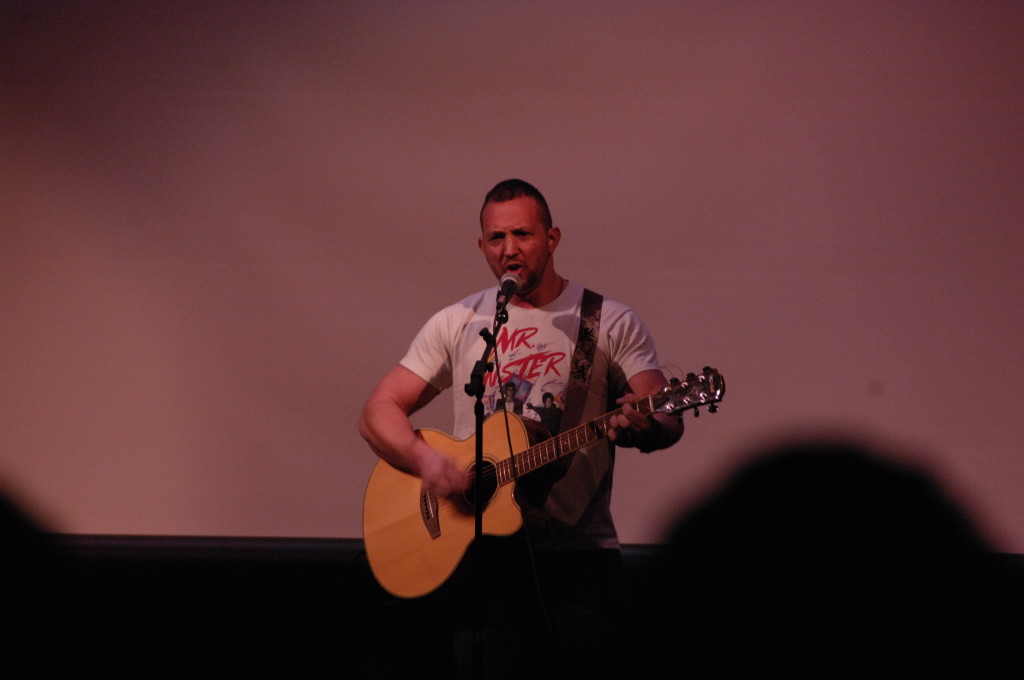
Photo by Jacob Cader.
The GSA assembly has been predictable the last few years, and I mean that in the best way possible. Without exception, after every GSA assembly the majority of students walk out of the auditorium excited and moved by the presentations, speeches and personal statements. This year, however, the assembly began with something new: the announcement of a name change from Gay-Straight Alliance to Queer-Straight Alliance. That switch set the stage for what was one of the most interesting, thought-provoking and enjoyable assemblies held at Fieldston recently.
From a personal standpoint, I found the change to a more accepting name to be a refreshing move forward from the traditional gay/straight/bisexual classification system. Further, the transition from discussing homosexuality to discussing all forms of sexuality—asexuality, fluid sexuality, transexuality, etc.—is surely a step in the right direction toward universal equality.
“One thing remains certain: greater visibility is necessary to end inequality”
However, just because our school is eager to recognize this next step doesn’t mean that society at large is as willing. Caroline Carty (V) “got involved with the QSA because [she] came from a [progressive] school that didn’t really acknowledge that queer people existed.” Her view, which is shared by many in the queer community, is that “society in general cares less about how people identify and more about who they are dating/marrying/kissing at the moment. Because of [the] tendency to stay in the present, a lot of the equality movement is focused on the communities [that] don’t allow much fluidity (i.e. gay and lesbian).” Along with a series of incredible student speeches (on topics ranging from asexuality to the sexuality spectrum), this year’s assembly contained an especially entertaining aspect: a performance by notable gay rights activist and musician, Justin Utley. Justin, who was raised in a Mormon household in Utah, battled homophobia from his family and friends for years before finally coming to terms with his sexuality, leaving his home, and going on to participate in incredible efforts of activism, including public interviews on news networks like CNN. During his time on stage, Justin entertained everyone in the audience with his singing and funny anecdotes, most of which focused on his experiences with homophobia and homosexuality.
Regardless of whom you ask, one thing remains certain: greater visibility is necessary to end inequality. As Caroline explains, “There is [still] blatant discrimination even in more liberal, accepting places. I hear derogatory slurs describing [the queer] community far more frequently than I do describing the lesbian or gay community. It is important for the identities outside of the popular acronym to become more visible.” So, for those at Fieldston who have wiped phrases such as “That’s so gay” and “No homo” from their vocabularies, try keeping the QSA assembly in mind. This way, next time you think about using a term that singles out a group such as trangenders or asexuals, you stop yourself in time.






